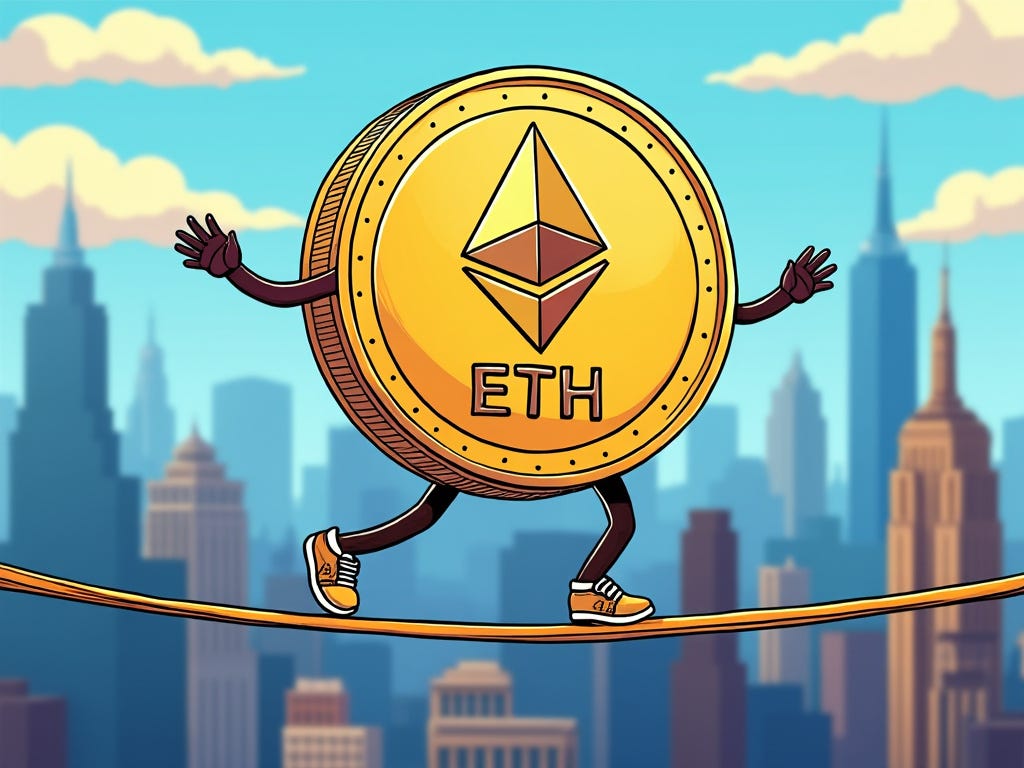1. Stablecoins and Payments
Much of crypto is focused on store of value, speculation and trading. However, one of the biggest real world use cases for mass adoption are stablecoins and real world payments. For those not familiar, a stablecoin is a coin that is directly backed by a US Dollar. It does not change in price and is pegged to the dollar.
Credit card fees for store owners can be up to 3.5% of the gross transaction. This can be brutal for businesses that have low profit margins.
Credit Card Real World Example
Hardware store sells goods with a 10% net profit margin before credit card fees
Hardware store accepts credit cards which charge 2.5%
Hardware store loses 25% of their profit to credit card companies
Cryptocurrency can help fix this issue by allowing merchants to accept payments in stablecoins (coins that replicate $1 USD) rather than through the traditional banking system.
Layer 2 Etherium chains like Base often have transactional costs of 1 cent or less (and dropping with advancing technology). In function this could lower credit card fees from 2.5% to below 0.5%
Dropping credit card transaction fees from 2.5% to 0.5% would mean the business in the example above would go from spending 25% of their profits on processing fees to only 5%.
Coinbase, Mastercard and many other large companies are making big progress in the payments ecosystem.
2. Gaming & Crypto
Ownership within gaming is one of the most logical use cases for crypto and NFTs.
If you buy a physical item, you own it, you can lend it to a friend, sell it, or trade it. However, currently almost all in-game assets are ephemeral or are fairly difficult to trade.
Ownership simply makes sense.
Reasons why cryptocurrency makes sense for ownership:
Larger possible transaction size: Currently hard to buy and sell expensive items over a few thousand dollars with credit cards
Microtransaction efficiency: No credit card fees as stated above
International marketplace: Far easier for international players to transact across the globe
Deep in game economy: Games can also potentially create their own in-game currency which can allow layers of depth to occur that have never before been seen. People can theoretically have an entire economic ecosystem in a video game.
3. Zero Knowledge Proofs
What is a Zero Knowledge (ZK) Proof?
It is a way to prove that you know something or own something without disclosing exactly what you know or all the details.
Simplified Example: Lets say you want to prove that you know the combination to a safe. You show a person the safe and that it is locked, ask them to turn around, unlock the safe with the combination and then show them the safe door is in fact now open.
The person knows you know the combination to the safe but they don’t get to see or learn the combination.
Examples of how ZK proofs could be used:
Real Estate: You might want to provide proof that you have a certain credit score, or that you have a specific amount of money in the bank. But you may not want to disclose your social security number or your actual bank information.
Example 1: An apartment building would want to verify credit score and proof of funds before giving a tour
Example 2: A real estate agent might want to verify proof of funds before giving a tour of a high end condo or home
Renting a car: Someone might want to rent a car, prove that they have insurance, license and are over 25 years old, but they may not want to disclose their actual information to the person at the rental counter
Healthcare: Can verify that a patient has insurance, or has a specific ailment without accessing all of their health records
Conclusion
Cryptocurrency has many more use cases than speculation on the value of a coin. This is what makes the space so interesting.
Over the next 5 years I expect to see many disruptions across industries. I believe in time we will see each of the 3 sectors above become massive industries in their own unique way.






Great post Josh. Very believable and compelling use cases.
Great insight! I also believe that the payment and gaming industries could experience a significant revolution thanks to blockchain. However, I’m not entirely on board with ZK. The world might need ZK, but maybe not ZK combined with blockchain.